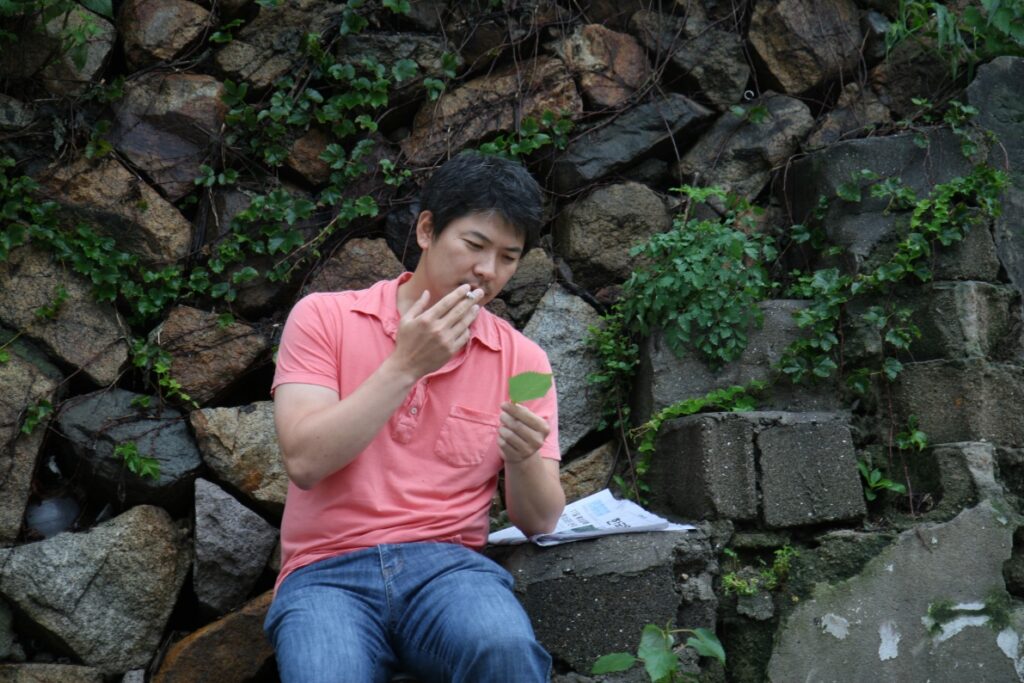True to its title, 2010’s Hahaha is very funny — amusing in ways that might even cloak its generous, searching ambition. The film follows two skirt-chasing, barely-employed Korean men: Joong-sik (Yoo Jun-sang), a depressed film critic pursuing an extramarital affair, and Moon-kyung (Kim Sang-kyung), a director set to leave for a dead-end trip to Canada (and possibly the most pathetic manchild that director Hong Sang-soo has ever written). From the black and white stills that open Hahaha, it becomes clear that the pair’s intermittent narration will situate this story — which trades a diptych structure for an interleaved, but linear progression, with each man swapping anecdotes from their respective vacations. Unbeknownst to them, both these stories occur not just at the same time and place, but also involve the same people, one of them a handsome, though equally useless poet named Jeong-ho (Kim Kang-woo). The setup — a kind of contemporary screwball scenario — is inherently amusing, and Hong further invigorates it with his trademark structural gamesmanship, employing frequent repetitions, doublings, and visual-verbal rhymes. (A highlight: Hong follows a romantic, rain-drenched walk with a creepy act of stalking.)
Amusing in ways that might even cloak its generous, searching ambition.
If nothing else, Hahaha contains one of the most memorable zooms of Hong’s entire filmography: Prompted by a heated lunchtime conversation on “honesty,” the camera rushes vertiginously to zero-in on a beggar idling by the town’s pier. In its drive to penetrate the surface of a scene and destabilize what would seem like an ordinary view of reality, this particular zoom is a handy summation of one of the most significant formal moves in the South Korean director’s toolkit, and entirely fitting for a film that continually negotiates between apprehension and comprehension. “The less you know, the more you see,” says Moon-kyung to Seong-ok (Moon So-ri), a tour guide he awkwardly attempts to woo throughout Hahaha. And in a surprisingly optimistic turn for a director who’s continually dealt in blinkered (male) self-delusion, Hong asks us to seriously consider that remark. Not for nothing does Admiral Yi (a famed Korean naval commander) appear to Moon-kyung in a farcical dream, saying that he only sees “the good in things.” But if history has a tendency to “mystify,” as one tourist dares to suggest regarding the admiral, Hong’s project is to reveal. The two drunken interlocutors may not have figured it out by the end, but the hope is that they may have seen just a bit more.


Comments are closed.